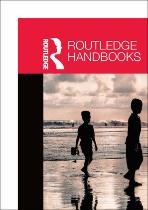Children’s rights and parental authority: African perspectives
| dc.contributor.author | Sloth-Nielsen, Julia | |
| dc.date.accessioned | 2022-05-09T07:29:17Z | |
| dc.date.available | 2022-05-09T07:29:17Z | |
| dc.date.issued | 2021 | |
| dc.identifier.citation | Sloth-Nielsen, Julia ‘Children’s rights and parental authority: African perspectives’ in John Eekelaar and Rob George, eds. The Routledge Handbook of Family Law and Policy 2nd ed. (Routledge, 2021) pp. 288-297 | en_US |
| dc.identifier.isbn | 9781003058519 | |
| dc.identifier.uri | http://hdl.handle.net/10566/7365 | |
| dc.description.abstract | Traditionally, children in African societies were raised communally, with extended family members playing a vital role in child rearing and care. Social reality is playing a formative role in relation to family law and policy, including in respect of children’s rights. Most African children still grow up under conditions of extreme poverty, which is exacerbated by urbanization, conflict, adverse climatic conditions and economic disparity which leaves large numbers of people unemployed or underemployed. Characteristic of the African human rights conception is a unique provision for the responsibilities of the child. Children’s rights feature prominently in African constitutions, and commonly include protection for the family, education rights and rights relating to special protection. | en_US |
| dc.language.iso | en | en_US |
| dc.publisher | Routledge | en_US |
| dc.subject | Children’s rights | en_US |
| dc.subject | Parental authority | en_US |
| dc.subject | Africa | en_US |
| dc.subject | Family law | en_US |
| dc.subject | Poverty | en_US |
| dc.title | Children’s rights and parental authority: African perspectives | en_US |
| dc.type | Article | en_US |

